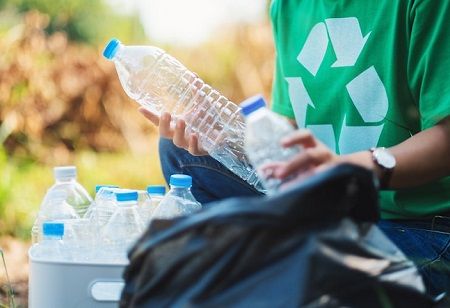
- Indonesia mandates EPR recycling for producers to combat plastic pollution.
- Country produces 60M tons waste yearly, 12% plastic, <10% recycled.
- Banned plastic waste imports from Jan. 1, 2025, after UN summit failure.
Indonesia is facing a serious plastic pollution problem. To tackle this waste crisis, the country will require producers to recycle. Each year, Indonesia generates about 60 million tons of waste, with 12% consisting of plastic. Currently, less than 10% of this plastic gets recycled, resulting in more than half ending up in landfills. A study by Cornell University in 2024 found that Indonesians are the world's biggest consumers of microplastics, ingesting about 15 grams each month.
Environment Minister Hanif Faisol Nurofiq announced this change after a UN summit in Geneva did not result in a binding agreement on plastic pollution. The Extended Producer Responsibility (EPR) system, which has been voluntary since a regulation in 2019, will now be mandatory. This means producers must take responsibility for the entire lifecycle of their products and packaging, including their impact on the environment.
Also Read: Indonesia-Japan Talks Boost Investment, Industry, and Energy
EPR promotes eco-friendly designs and reuse options, not just recycling, as highlighted by Muharram Atha Rasyadi from Greenpeace Southeast Asia. He called for making EPR mandatory for better management of plastic pollution, criticizing the slow pace of voluntary actions. Indonesia ranks as the second-largest ocean plastic polluter after China, according to a 2015 study in Science.
The country's poor waste practices worsen the problem. To address this, Indonesia will ban plastic waste imports starting January 1, 2025, after sending 260,000 tons annually from countries like the US, UK, and Australia. Regional actions include Bali's 2019 ban on single-use bags, straws, and Styrofoam, along with Jakarta's 2020 restrictions. These measures aim to lessen environmental risks from single-use plastics that contain harmful materials.

